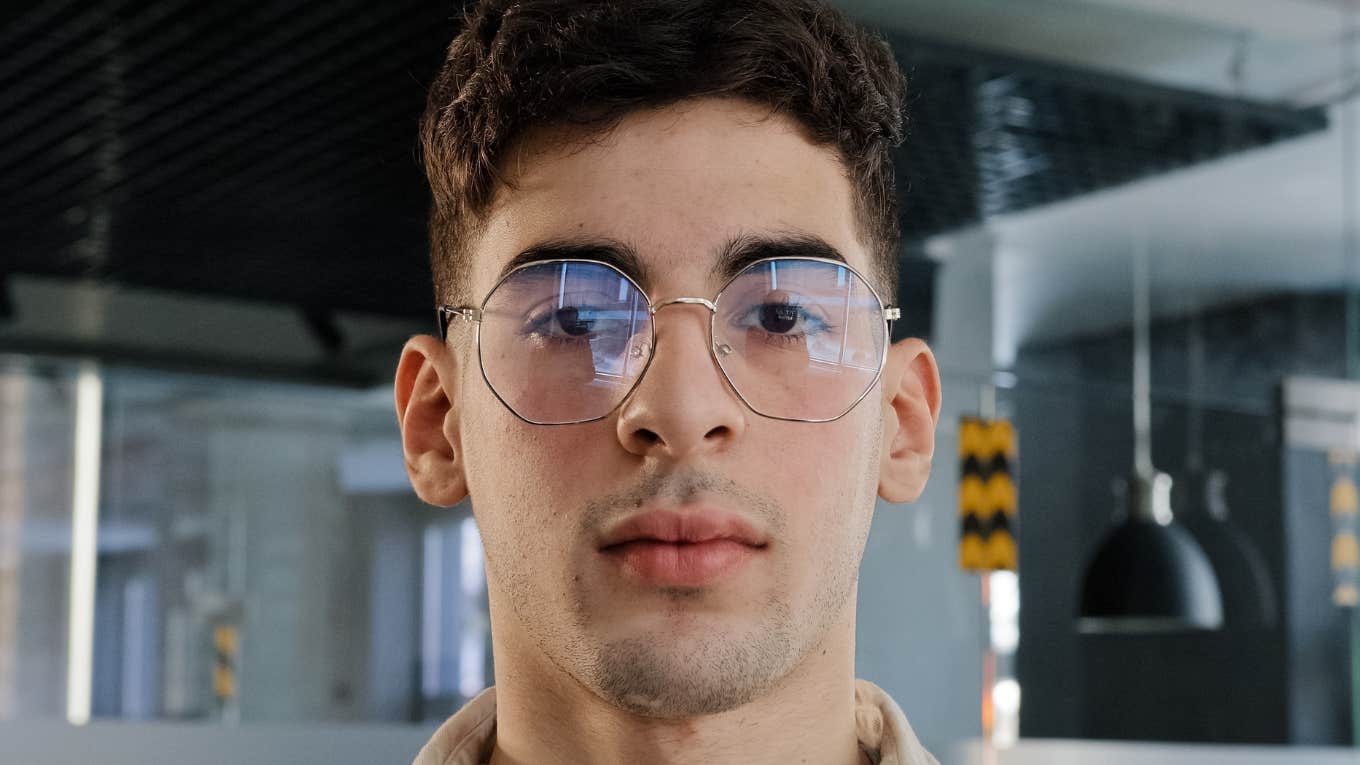8 Subtle Traits Of People With Only A Few Friends
Some people are perfectly content with a small social circle.
 MAYA LAB | Shutterstock
MAYA LAB | Shutterstock Making friends isn't an easy process, especially as people grow older.
With age, social circles tend to get smaller, yet the size of someone's friend group doesn't necessarily determine how happy they are. People with a large network of friends might feel lonely, while the traits of people with only a few friends may include the ability to bond better with close-knit friendships.
When it comes to forming friendships, quality often matters more than quantity. It's possible for someone with a lot of friends to struggle with not feeling fully seen, while someone with fewer friends feels more appreciated and cared for.
People value different attributes within their friendships, especially if they're highly selective about who they let into their inner circle.
Here are 8 subtle traits of people with only a few friends
1. They value deep connections
 Pixel-Shot | Shutterstock
Pixel-Shot | Shutterstock
People who have only a few friends focus on how their friends make them feel. They're less likely to have fake friends or cultivate toxic relationships with frenemies. They value deep, lasting connections and choose their friends wisely as a result.
They don't have time for small talk or conversations that stay on the surface. They want to dive into meaningful discussions with the friends they hold near and dear to their hearts.
According to a 2014 research paper titled "Friendship and Natural Selection," developing friendships is a fundamental aspect of being human. Unlike other species, we bond with people who aren't family members or spouses. Researchers noted that these types of social ties are unique to humans, stating that "Friends may be a kind of ‘functional kin.'"
People with only a few friends make that statement a reality, as they consider those friends to be their chosen family.
2. They're highly observant
 Studio Romantic | Shutterstock
Studio Romantic | Shutterstock
A subtle trait of people with only a few friends is that they're very observant. They pick up on nuance and notice things other people miss. They pay close attention to what their friends say and how they say it. If someone is struggling, they won't put them on the spot, but they will check in privately and offer their support.
A person who only has a few friends listens more than they speak, and they're a very skilled listener. They practice active listening, which means they devote their full focus to the person they're talking to and validate that person's feelings.
They don't always share their opinions, especially in larger social settings. They tend to stay on the sidelines and watch how people interact, which is what gives them their superior powers of observation. When they do take center stage, they take their time to gather their thoughts and express their beliefs in a clear and considerate way.
3. They have a strong sense of self-worth
 Carlos Barquero | Shutterstock
Carlos Barquero | Shutterstock
The American Psychological Association defines the concept of self-worth as "An individual's evaluation of themself as a valuable, capable human being deserving of respect and consideration." The APA also notes that having a positive sense of self-worth is connected to having high self-acceptance and self-esteem.
While it might seem counterintuitive, people who have only a few friends tend to have strong self-worth. They don't need external validation to feel good about themselves, which is why they're not bothered by having a small friend group. They build their confidence organically, and they don't depend on other people to define themselves.
They know exactly who they are and what fulfills them. They're independent thinkers who aren't easily swayed by others. As a result, they don't bend to peer pressure or change their mindset based on popular opinion. They feel totally comfortable having only a few friends, because their friendships are meaningful and purposeful.
4. They're emotionally self-reliant
 mentatdgt | Shutterstock
mentatdgt | Shutterstock
Another subtle trait of people with only a few friends is that they're emotionally independent. They place strong emphasis on being self-reliant, which means they often keep their challenges to themselves. They process their emotions internally rather than externally, and spend a lot of time working through how they feel before they tell anyone else.
Due to their reserved nature, they sometimes struggle to reveal the hardships they're facing. They don't want to overshare or emotionally dump on their friends, which can mean they shy away from asking for help, even when they really need it.
They worry that expressing their inner turmoil might alienate the few friends they have. When they do reveal what they're going through, they often frame their situation as not being a big deal.
While being emotionally transparent isn't their strong suit, people with only a few friends do find relief once they share how they really feel. They might need a reminder that it's okay to be vulnerable, but with practice, they learn to let other people in.
5. They don't seek out attention
 fizkes | Shutterstock
fizkes | Shutterstock
People with only a few friends don't want to be the center of attention. They'd much rather blend into the background and watch the world go by then stand directly in the spotlight. Their tendency to avoid grabbing people's attention sometimes presents problems for them, especially in a professional setting.
They might hesitate to speak their mind, even when they know they have a good idea. They tend to let other teammates take control of a project, which often means they don't get the credit they deserve. They have a hard time advocating for themselves – not because they don't think they're worth it, but because they don't want to seem demanding or arrogant.
Even if they're highly intelligent, they can be overlooked on the job, as louder colleagues who take up more space might block their shine.
6. They're comfortable being alone
 Luke SW | Shutterstock
Luke SW | Shutterstock
People with only a few friends balance their social life with time spent on their own. They're totally comfortable being alone because it gives them the opportunity to recharge their energy and center themselves. They sometimes turn down invites to go out because they want to focus on their own projects and hobbies.
A psychological study from 2017 defined social withdrawal as the tendency to remove oneself from their peers. Researchers outlined different types of social withdrawal, noting that they're all rooted by different motivations. Shyness is caused by fear or anxiety. Avoidance is caused by a dislike of social interaction. Unsociability is due to a preference for solitude, which often is a trait of people with only a few friends.
The study noted that unsociability is associated with "positive adjustment outcomes," such as creativity. The study's authors concluded that "anxiety-free time spent in solitude may allow for and foster creative thinking and work."
People who only have a few friends genuinely enjoy being alone, because it allows them time to think deeply and devote themselves to their creative pursuits.
7. They take time to open up
 TimeImage Production | Shutterstock
TimeImage Production | Shutterstock
A subtle trait of people with only a few friends is that they tend to be reserved. It takes them time to open up to people. As a result, they seem to be very mysterious. Yet once they feel comfortable, they let people get to know them, little by little.
People with only a few friends come off as being quite private. They're not the kind of friend who spills secrets or shares their dreams easily. It can be difficult to get to know them at first. They tend to hold back on revealing deeply personal details until they know they can really trust someone.
Their quiet personalities might make them come off as aloof or standoffish, but they're actually warm and caring, as long as someone puts in the time and effort to get to know them.
8. They’re dependable
 PeopleImages.com - Yuri A. | Shutterstock
PeopleImages.com - Yuri A. | Shutterstock
People with only a few friends are dependable and devoted. When they ask if you need help, they're not just offering support to seem nice – they really mean it. They'll bring you soup when you're sick. They'll help you move when all your other friends bail. They'll drop you off at the airport, because they genuinely want to do you that favor.
They're the friend you can confide in, and know that they won't share what you said with anyone else. They offer their friends true emotional connection and deep loyalty.
People with only a few friends choose their friends carefully because they want those bonds to last a lifetime.
Alexandra Blogier is a writer on YourTango's news and entertainment team. She covers social issues, pop culture analysis and all things to do with the entertainment industry.

